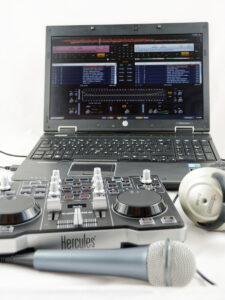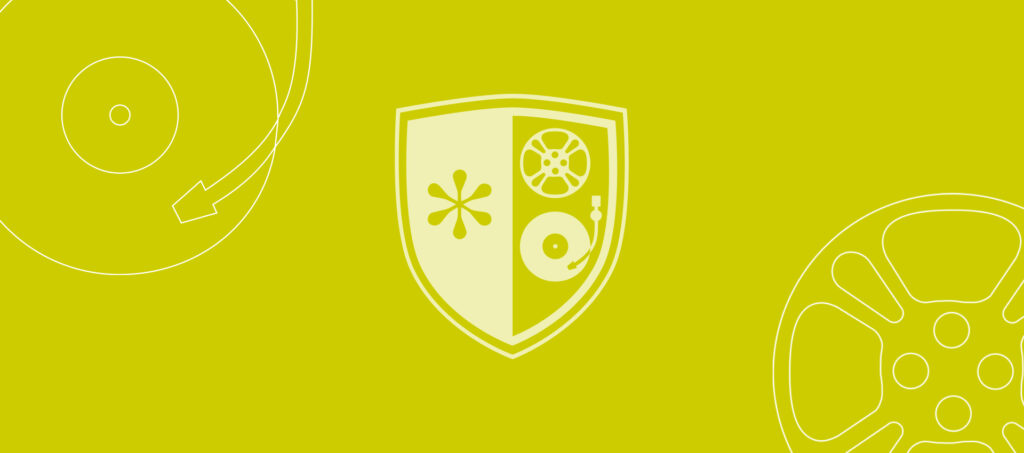 In a case involving well-known musicians, the Federal Constitutional Court is currently considering the question of the extent to which unsolicited sampling is permissible(Ref.: 1 BvR 1585/13). The decision is expected this year and is likely to have a major impact on the music market.
In a case involving well-known musicians, the Federal Constitutional Court is currently considering the question of the extent to which unsolicited sampling is permissible(Ref.: 1 BvR 1585/13). The decision is expected this year and is likely to have a major impact on the music market.
The well-known German band “Kraftwerk” had sued the producer Moses Pelham under civil law and twice got right up to the Federal Supreme Court(Az: I ZR 112/06 and I ZR 182/11). The producer had sampled sounds from Kraftwerk’s musical works without consent and used them for his own pieces. Producer Moses Pelham was ordered to cease production and distribution and to surrender the records in question, destroy them and pay damages. The producer and the singer of the song, Sabrina Setlur, and eight other musicians are now defending themselves against this with a constitutional complaint before the Federal Constitutional Court. It’s about the track “Nur mir” by Sabrina Setlur from 1997. It is based on a loop (a continuous rhythm figure) from the song “Metall auf Metall” by Kraftwerk from 1977. The disputed sequence is only 2 seconds long.
Sampling
This procedure is called sampling. It is quite a common technique in music production. In this process, a usually very short part is taken from an already existing song and incorporated into a new work. As a rule, the removed part is still processed and adapted to the own piece. It is controversial whether and when exactly this method is permissible.
ancillary copyright vs. artistic freedom
The musicians of Kraftwerk are of the opinion that the disputed piece constitutes an infringement of their exploitation rights pursuant to Section 85 (1) sentence 1 of the Copyright Act. This was also the view of the Federal Court of Justice. Even the use of the smallest excerpts constitutes an encroachment on the ancillary copyright and thus requires consent. An exception to this only exists under Section 24(1) of the Copyright Act (“Free Use”) if the relevant part of the play cannot be reproduced in the same way. In the present case, however, this does not apply according to the findings of the lower courts.
The German government, however, takes a different view. A representative of the Federal Ministry of Justice explained in the proceedings before the Federal Constitutional Court that the smallest snippets of sound are not covered by the ancillary copyright. The complainants also consider their actions to be covered by artistic freedom pursuant to Article 5 (3) sentence 1 of the German Basic Law. The consent requirement for the extraction of the smallest audio tracks alone violates artistic freedom. In any case, sampling is such a minor interference without economic disadvantages that the ancillary copyright must take a back seat to artistic freedom. The exemption provision under Section 24(1) of the Copyright Act would also not do justice to artistic freedom, as it is not specific enough and thus unsettles the music creators as to whether their actions are permissible. Overall, creatives would be too restricted in their work because they would no longer be able to deal with recordings from the past. Also the demand to produce the part in question itself does not make sense, since a reference to the original piece is sought.
Conclusion
So far, the Federal Constitutional Court has not conclusively clarified the legal situation regarding sampling. The expected ruling is expected to have a major impact on future music productions. In addition, other sampled artists could also sue other composers depending on the outcome of the case. Due to the uncertainty of the legal situation and the widespread use of sampling in today’s music, especially in hip-hop, clarification by the Supreme Court is welcome.
If you have any questions or need assistance with a dispute regarding copyright or ancillary copyright infringement, please feel free to contact us by phone at 0221-4201074, by email at info@rehkatsch.de, or schedule an appointment with our law firm.


